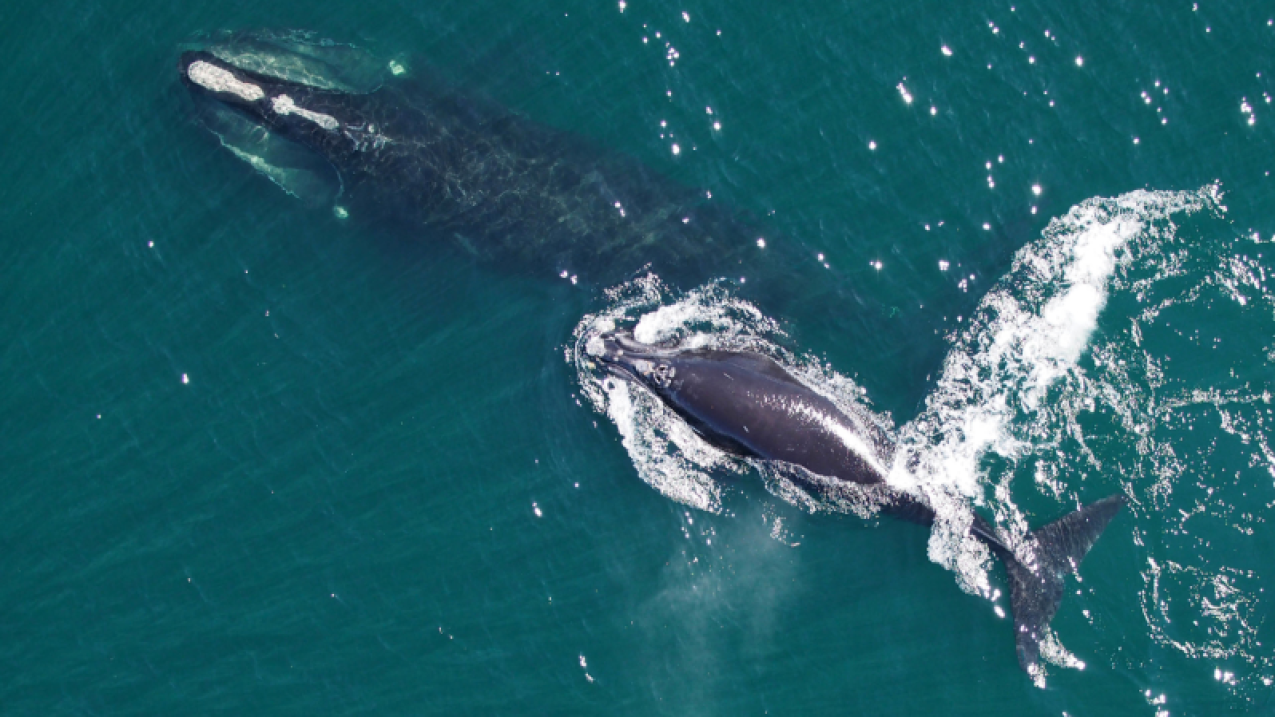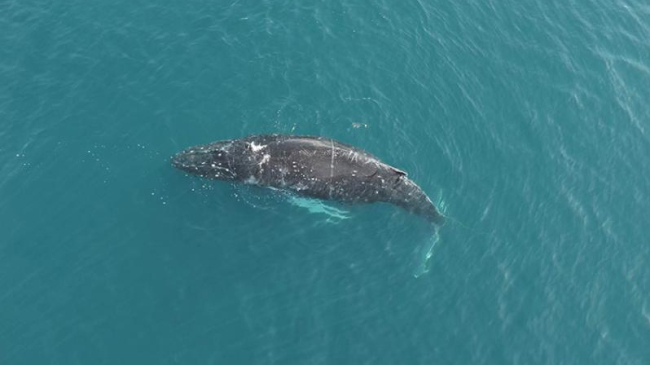
North Atlantic right whale mother and calf. (Image credit: NOAA Fisheries)
Today, the Department of Commerce and NOAA announced next steps to conserve and recover endangered North Atlantic right whales with $82 million in funding from the Inflation Reduction Act — the largest climate and conservation investment in history. This announcement comes during Climate Week and is part of the $2.6 billion framework to invest in coastal resilience that NOAA announced earlier this year.
North Atlantic right whales are approaching extinction with fewer than 350 individuals remaining, including fewer than 70 reproductively active females. Today’s funding provides an unprecedented opportunity to address the primary threats to the species — entanglements in fishing gear and vessel strikes — with new technologies and approaches.
“This historic funding will allow NOAA Fisheries to make critical advancements in our work to save the endangered North Atlantic right whale species,” said U.S. Secretary of Commerce Gina Raimondo. “With $82 million of Inflation Reduction Act funding, we are making smart investments — a cornerstone of Bidenomics — to help address the crisis these whales are facing through innovative solutions that minimize the impact on workers in marine industries.”
New funding will support the application of existing technologies — such as passive acoustic monitoring — and the development and implementation of technologies to enable vessels to detect and avoid North Atlantic right whales and other large whales. Additionally, NOAA Fisheries will continue to develop and evaluate new technologies — such as those that use high-resolution satellite information — to transform North Atlantic right whale monitoring and improve understanding of the whales’ distribution and habitat use.
“During the past decade, right whales have changed their distribution patterns, spending more time in areas with fewer protections from vessel strikes and entanglements,” said Janet Coit, assistant administrator for NOAA Fisheries. “The species has experienced a severe population decline that has underscored the urgency to take new and innovative actions for their recovery. This funding allows us to invest in technologies to reduce the risk of vessel strikes, increase the use of on-demand fishing gear and improve enforcement of existing federal regulations.”
NOAA will invest in four major areas over the next three years to include monitoring and computer modeling of whale distribution, vessel strike risk reduction, on-demand fishing gear and enforcement efforts. NOAA anticipates using funding as follows:
- About $35.8 million for monitoring and modeling, including approximately:
- $17.2 million will go toward passive acoustic monitoring along the U.S. East Coast.
- $3.5 million will go toward a satellite tagging monitoring program, in addition to $5.6 million for high resolution satellite artificial intelligence.
- $5.2 million will be used for modeling advancements.
- About $20.1 million will be invested toward vessel strike risk reduction efforts, including approximately:
- $16.7 million will be dedicated to whale detection and avoidance technology development.
- About $17.9 million will be invested to support furthering on-demand fishing gear technology.
- About $5 million will be invested in enforcement efforts, supporting new equipment, technologies and operations.
These funds support NOAA Fisheries’ Road to Recovery for North Atlantic right whales. The species is endangered, declining and experiencing an Unusual Mortality Event, which NOAA Fisheries declared in 2017 following the documentation of elevated right whale mortalities. This event is ongoing and includes 115 North Atlantic right whales that are deceased, seriously injured or in poor health.
Along with leveraging other funding and supporting the development of innovative fishing gear, NOAA will use Inflation Reduction Act funding to partner and coordinate with federal, state, industry and other partners to promote the development and implementation of advanced solutions to address existing and emerging threats to the species.
Media contact
Katie Wagner, nmfs.pa@noaa.gov, (443) 458-8480



